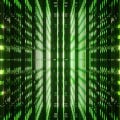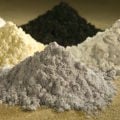Thursday, March 18 2010 6-9.30pm, Reading University Great Hall, London Road, Reading, RG1 5AQ
Speakers:
Chaired and moderated by Chris Parker
Dr Chris Welch, Astronautics & Space System Lecturer, Kingston University
Dr David Clements, Astrophysics Lecturer, Kingston University
Derek Wall, Green Party Principal Speaker
Dr Stuart Eves, Surrey Satellite Technology Limited (SSTL), Guildford
Each year we organise a particularly prestigious event with the title of “The Great Debate” which tackles a particular subject with a number of high powered speakers. This is done with the collaboration of fellow volunteers in the IMechE, ICE, IChemE and BCS. In previous years we have tackled subjects as diverse as transport, energy and climate change. This year the subject of the debate is Space.
This event is the natural extension of the previous two Great Debates. The Great Environmental Briefing considered the environmental challenges that face mankind and the Great Climate Changing Debate proposed some solutions to those problems. The Great Space Debate considers the possibility that we will be unsuccessful at resolving the problems of climate change and will be forced to leave Earth.
The objectives of the Great Space Debate 2010 are:
1) To investigate the practicalities of journeying into outer space
2) To consider whether the cost benefit of space exploration is worthwhile
3) To argue the case for and against leaving planet Earth
4) To consider colonisation of other planets
5) To consider the implications for future generations
Presenter’s Details
Chris Welch – Lecturer in Astronautics at Kingston University
Dr Chris Welch is Principal Lecturer in Astronautics and Space Systems at Kingston University where he currently holds both a Teaching and a Business Fellowship. His research interests include spacecraft propulsion and planetary exploration. He is also a Faculty member of the International Space University, a Visiting Lecturer in Spacecraft Propulsion at Cranfield University and both a STEM and NCCPE Public Engagement Ambassador.
Dr Welch is a frequent commentator on space and astronautics and has made more than 200 television and radio broadcasts. Among Dr Welch’s other achievements are that he was one of the final twenty candidates for the 1991 UK-USSR Juno mission to the Mir space station and has written what he believes to be the first ever paper on extraterrestrial garden design.
David Clements – Astrophysics Lecturer Imperial College
Much of the history of star and galaxy formation in the universe is hidden by dust. My research is concerned with using long wavelength observations, in the mid- to far-IR and submillimetre, to see through the obscuring dust and to uncover the role and internal physics of dusty objects in the history of the universe. As part of this work I am involved with a wide range of observational programmes. These include:
- The Planck Surveyor – http://www.sciops.esa.int/index.php?project=PLANCK
- The Herschel Observatory – http://herschel.esac.esa.int/
- SPICA – http://www.ir.isas.jaxa.jp/SPICA/h2l2_spie/h2l2.html
- SCUBA2 – http://www.roe.ac.uk/ukatc/projects/scubatwo/
- Spitzer – http://spitzer.caltech.edu/
Derek Wall – Former Green Party Principal Speaker
Derek Wall is an economics lecturer and writer. He lives in Berkshire and has three sons. He has been a member of the Green Party since 1980. He was Green Party Principal Speaker from 2006 to 2007. Derek is a founder of the Ecosocialist International and Green Left. He has written a number of books on green politics. He also writes a regular monthly column in the Morning Star newspaper. Derek believes we must have social justice and ecology and that climate change threatens us all. Derek has been active in the green movement since 1980. He has campaigned for Human Rights.
Stuart Eves – Surrey Satellite Technology Limited
Dr Stuart Eves is responsible for military business at Surrey Satellite Technology Limited (SSTL) in Guildford. He spent 16 years with the UK Ministry Of Defence, in various space-related posts, before joining SSTL in January 2004.
Stuart has an MSc in Astrophysics, a PhD in constellation design, and has been a fellow of the Royal Astronomical Society for more than 15 years. He takes an active interest in all things space, and over the past 18 months has been involved in media stories as diverse as:- William Herschel’s observations of the Rings of Uranus; a space experiment competition for UK schools; the Chinese and US ASAT missile tests; a novel scientific theory involving eclipses and ultrasound; and the possibility of detecting earthquake precursor signals from space.


